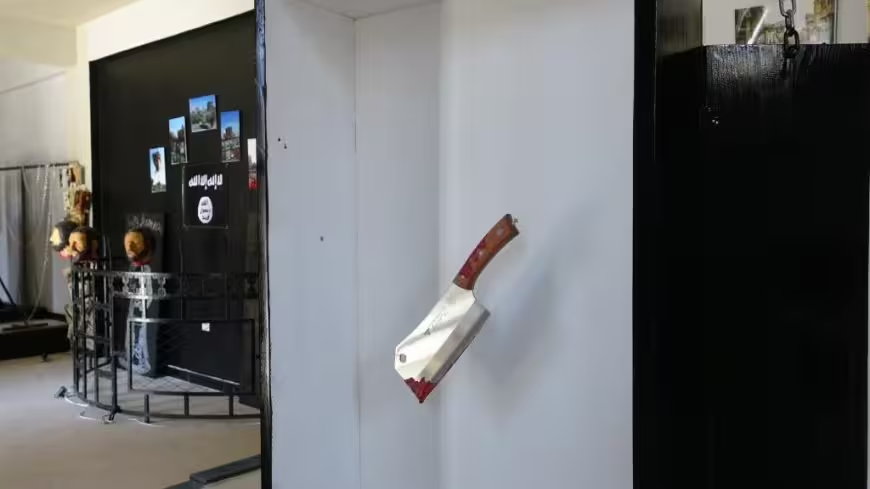“Unforgettable Memories” Museum in Raqqa documents ISIS crimes
After a year and a half of work, the Raqqa Museum has opened its doors, bearing witness to the dark period of ISIS rule.
After a year and a half of work, the Raqqa Museum has opened its doors, bearing witness to the dark period of ISIS rule.

Around seven years after Raqqa's liberation, the “Unforgettable Memories” Museum opened as the first comprehensive museum documenting the crimes of ISIS mercenaries in the city.
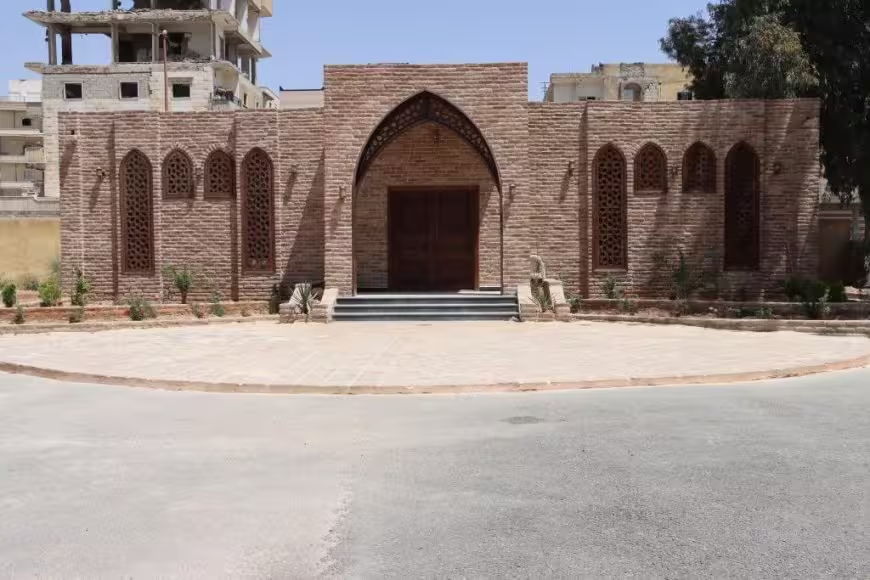
The museum is not merely a witness to past events but also a symbol that warns future generations about the potential return of darkness and reminds the world that justice is an urgent demand for all of Syria, from Raqqa to the coast.
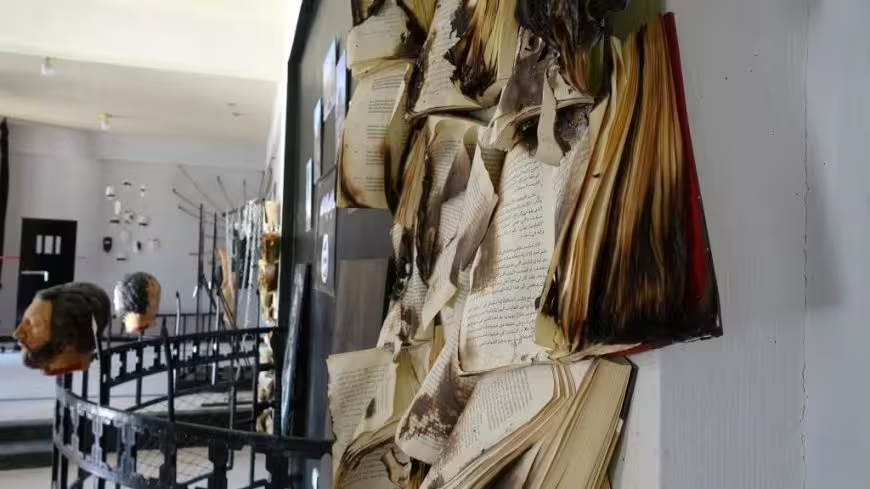
Speaking to ANHA, Serfiraz Şerîf, Co-Chair of the Culture and Arts Committee of the North and East Syria Region, said, “The museum has 100 photographs carefully selected from thousands of documents obtained with great difficulty. These photographs are related to the forced recruitment of children into mercenaries and their training in execution by firing squad.”
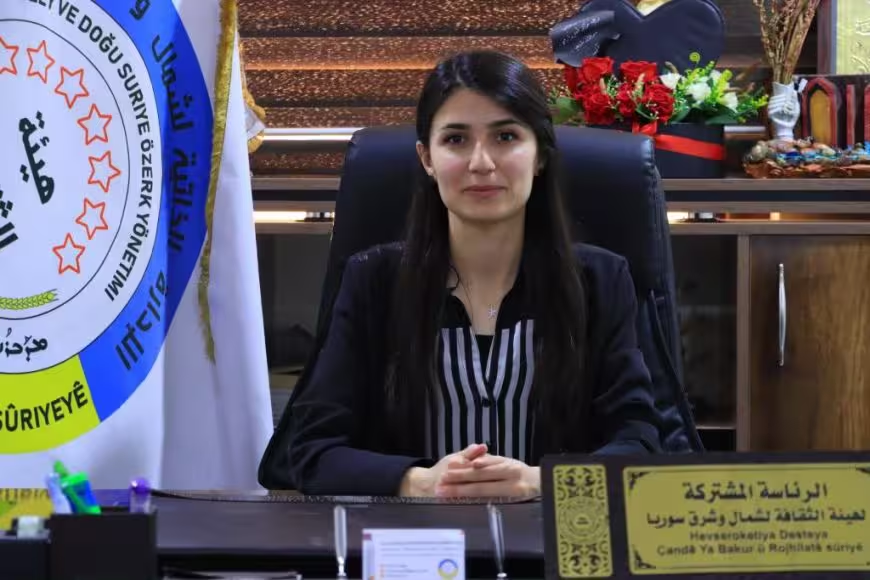
Şerîf continued: “There have been violations against women who have been deprived of education and working life and forced to wear veils at gunpoint. In addition, the archaeological sites of the city, which are the heritage of a civilization dating back thousands of years, have been destroyed.”
Drawing attention to the brutal execution methods, Serfiraz Şerîf said, "ISIS mercenaries used many brutal execution methods, such as crucifixion, burning, and drowning. The victims were civilians. Many executions took place at Neim Junction, known as Hell's Crossroads. ISIS mercenaries hung 80 severed heads at that junction in a single day."
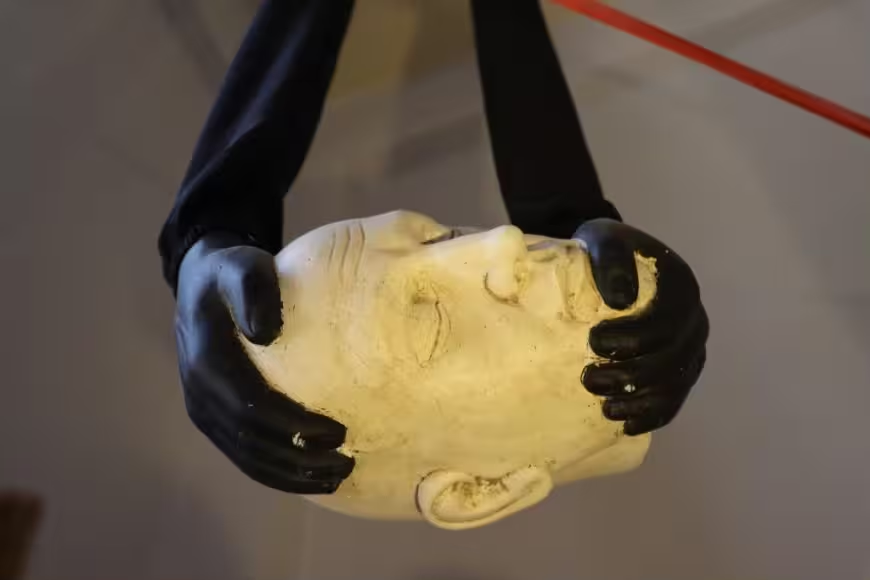
Artists portrayed the brutality of ISIS through their sculptures. Artists depicted the Neim Junction. In addition, artists created sculptures depicting violations against women. For example, a sculpture of a woman chained and another sculpture depicting the execution of women with severed heads are on display in the museum. Additionally, ten sculptures of decapitated heads with unknown identities were erected to remind people of the thousands of victims whose fate remains unknown even today.
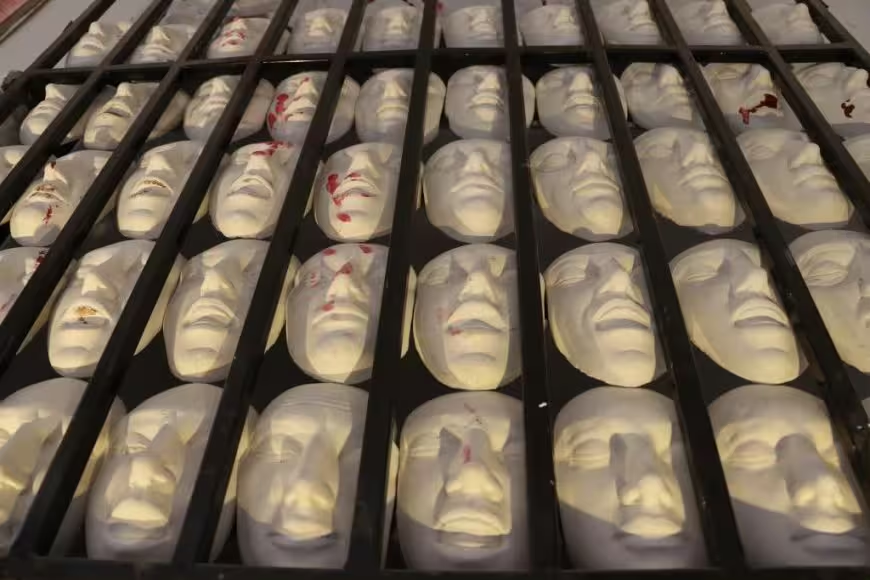
Serfiraz Şerîf said that some of the tools used by ISIS for hanging were also on display at the museum. Various decrees issued on issues such as the imposition of prayer, the closure of shops, the execution of opponents, the conversion of schools into Sharia courts, and the removal of educational materials on the grounds that they violated Islamic law are also on display at the museum.
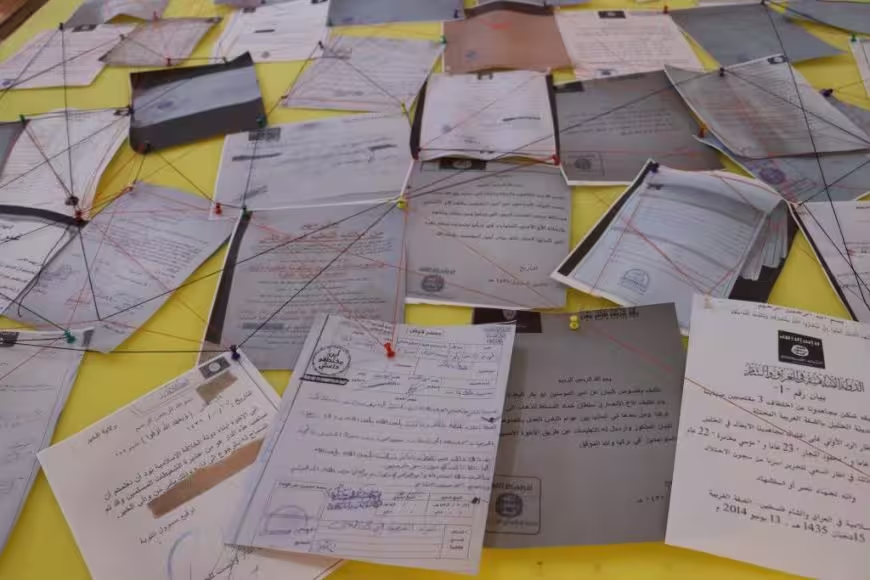
The museum’s message: Between the past and the present
Şerîf stated that the aim is not only to document the suffering, but also to document the resistance of the people of Raqqa and the sacrifices of the Syrian Democratic Forces (SDF) and the Women's Defense Units (YPJ), who liberated the region from the terrorism of the ISIS in 2017.
The museum shows that women's rights were banned and heritage was destroyed during ISIS rule, and that with the advent of the Autonomous Administration, women were included in the workforce and cultural institutions were restored.
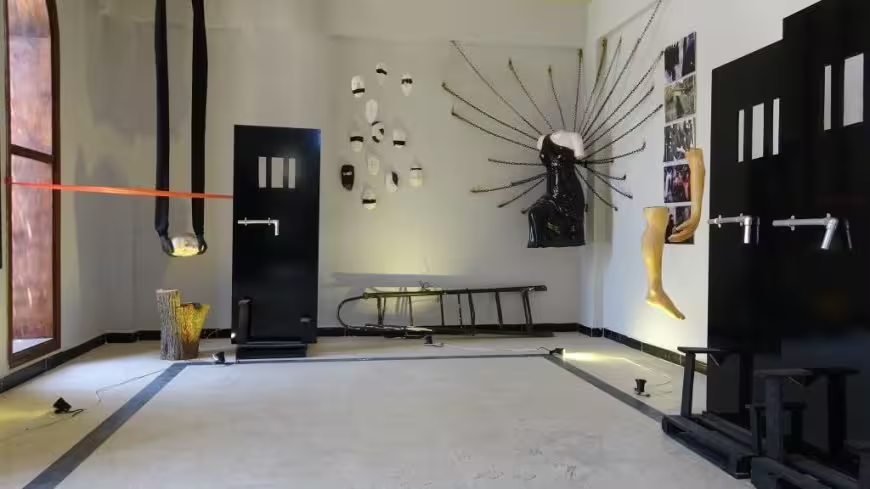
Şerîf called for justice during the transition process, demanding that everyone who has committed crimes against Syrians—whether it be ISIS or the occupying Turkish state that continues to commit crimes in Northern Syria—be held accountable.
The museum has already welcomed delegations from within Syria as well as tourists from the US, China, and Singapore. The visitors were shocked by documents showing markets where Yazidi women were sold and were unable to look at all the scenes and sculptures depicting the period and the brutality of the mercenaries.
